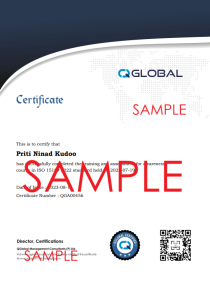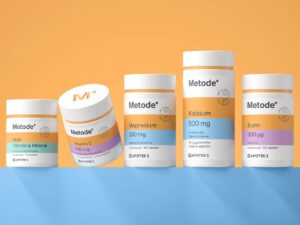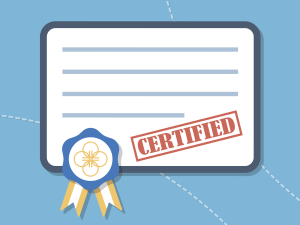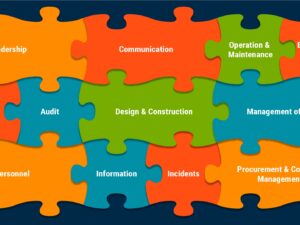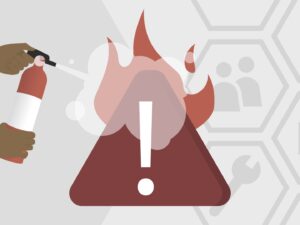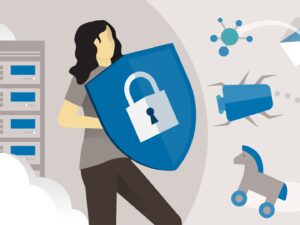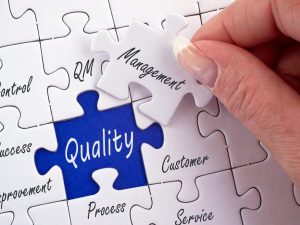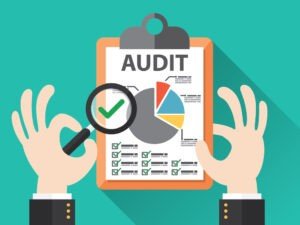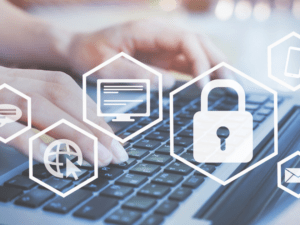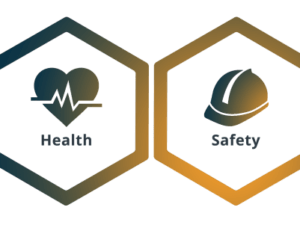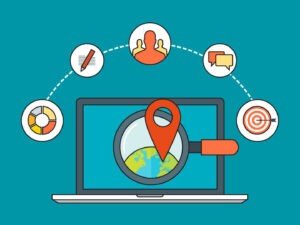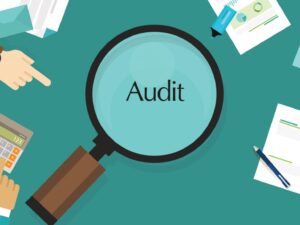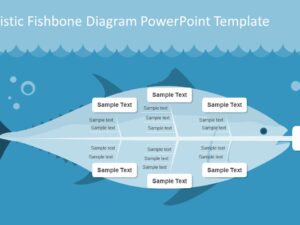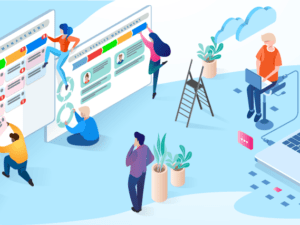ISO 17025 2017 General Requirements for the Competence of Testing and Calibration Laboratories - Internal Auditor & Quality Manager Course
- Description
- Curriculum

ISO/IEC 17025 general requirements for the competence of testing and calibration laboratories enables laboratories to demonstrate that they operate competently and generate valid results, thereby promoting confidence in their work both nationally and around the world. It also helps facilitate cooperation between laboratories and other bodies by generating wider acceptance of results between countries. Test reports and certificates can be accepted from one country to another without the need for further testing, which, in turn, improves international trade. ISO/IEC 17025 is useful for any organization that performs testing, sampling or calibration and wants reliable results. This includes all types of laboratories, whether they be owned and operated by government, industry or, in fact, any other organization. The standard is also useful to universities, research centers, governments, regulators, inspection bodies, product certification organizations and other conformity assessment bodies with the need to do testing, sampling or calibration. ISO 17025 2017 internal auditor and quality manager course will help you learn how to initiate an audit, prepare and conduct audit activities, compile and distribute audit reports and complete follow-up activities. On successful completion of this course, you will be able to optimize your auditing skills with the internationally recognized ISO 17025 2017 standard and boost your audit capabilities. Also gain confidence in planning and performing an effective audit, as well as reporting and taking corrective action where necessary. ISO 17025 2017 internal auditor and quality manager training course develops the necessary skills to assess and report on the conformance and implementation of processes based on ISO 17025 2017.
Who Should Attend?
- Anyone involved in the planning, implementing, maintaining, supervising or auditing of an ISO 17025 2017 laboratory quality management system
- Those who like to handle the role of an ISO 17025 2017 internal auditor in a laboratory
- Personnel who wish to pursue career as an ISO 17025 2017 internal auditor
- Expert advisors in laboratory quality management
- Lab owners, managers and directors
- Quality managers and technical managers in the laboratory
Key Benefits
- Gain the skills to plan, conduct, report and follow up audits in accordance with ISO 19011
- Learn skills to lead an internal audit team
- Identify the aims and benefits of an ISO 17025 2017 audit
- Interpret ISO 17025 2017 requirements for audit application
- Grasp the application of risk-based thinking, leadership and process management
- Acknowledge the correlation between ISO 17025 2017 and other standards and regulatory frameworks
- Learn the latest techniques in ISO 17025 2017 internal auditing
Learning & Evaluation Method
This is a self learning course. Study materials will be available in your account once you purchase the course. If you need a live and interactive course, you can opt for ‘ BUY FOR A GROUP ‘ option. Live course will have role plays, online workshops, practice questions and group discussions during the course so that each participant will gain in depth knowledge in the subject. Group purchase can be made for a single participant or for a group of participants. On receiving your order, our team will contact you to schedule a live training session as per your convenience. After the completion of this course you can participate in the online examination. Those securing minimum 70% marks will pass the exam. You will be allowed to retake the exam. Passing the exam is mandatory to receive a course completion certificate.
Certification
There are increasing numbers of organizations, who prefer candidates those who have certain certifications from recognized programs. Certification demonstrates your commitment to superior professionalism, upholding industry standards, and continued learning. These merits can help boost your professional credibility and prestige within your own network, in your organisation, with your current clients, and when pursuing new business opportunities. After the successful completion of the course and final exam, you will be awarded with a certificate of completion issued by QGlobal. Your credentials will be made available in the global online directory and can be verified by anyone searching with the certificate number. Without doubt we can say that our training courses are well recognized and sought after by organizations across various geographies.
Buy for group Are you planning to buy this course for a group? We have the best prices for you! Select ‘Buy for Group’ option and add to the cart. You will get a discount of 60 – 75% for a group of up to 10 participants. To make a group purchase, create your group name and add individual emails of up to 10 participants. Each participant will get the access to the course materials, exam and the certificate. We will arrange one live-online session for the entire group.
Total: 206 Courses View all
Total: 206 Courses View all
-
1Introduction to standards and certification
- Purpose of standardization
- Benefits of certification
-
2Introduction to ISO 17025 2017 standards
- Scope and application areas
- Terms and definitions
- Quality management principles
- Process based approach
- Plan-Do-Check-Act cycle
- Risk based thinking
- Benefits of certification
- Certification process flow
-
3ISO 17025 General requirements
- Impartiality
- Confidentiality
-
4ISO 17025 Structural requirements
- Defining the organizational structure
- Defining the scope
- Internal communication
- External communication
-
5ISO 17025 Resource requirements
- General
- Personnel
- Facilities and environmental conditions
- Equipment
- Metrological traceability
- Externally provided products and services
-
6ISO 17025 Process requirements
- Review of requests, tenders and contracts.
- Selection, verification and validation of methods
- Selection and verification of methods
- Validation of methods
- Sampling
- Handling of test or calibration items
- Technical records
- Evaluation of measurement uncertainty
- Ensuring the validity of results
- Reporting of results
- General
- Common requirements for reports (test, calibration or sampling)
- Specific requirements for test reports
- Specific requirements for calibration certificates, if applicable
- Reporting sampling – specific requirements
- Reporting statements of conformity
- Reporting opinions and interpretations
- Amendments to reports
- Complaints
- Nonconforming work
- Control of data and information management
-
7ISO 17025 Management system requirements
Management system documentation
Control of management system documents
Control of records
Actions to address risks and opportunities
Improvement
Corrective actionInternal audits
Management reviews
-
8Implementing ISO 17025 2017 standards
Activity – Implementing general requirements
Activity – Implementing structural requirements
Activity – Implementing resource requirements
Activity – Implementing process requirements
Activity – Implementing management system requirements
-
9LI 01 Building the team
-
10LI 02 Conducting gap analysis
-
11LI 03 Preparing implementation plan
-
12LI 04 Creating awareness
-
13LI 05 Conducting training
-
14LI 06 Procuring documents
-
15LI 07 Creating management system manual
-
16LI 08 Creating policies and procedures
-
17LI 09 Creating forms and templates
-
18LI 10 Planning for certification
-
19LI 11 Implementation methodology
- Building the culture
- Plan-Do-Check-Act
-
20LI 12 Role of leadership in implementing the management system
- Leadership concepts
- Role of leaders in implementing the management system
- 12 Characteristics of team leaders and managers
-
21LI 13 Employee motivation and involvement
- Employee wants
- Achieving a motivated workforce
-
22LI 14 Obstacles in implementing the management system
- Inability to manage the change
- No planned review of the system
- Inadequate planning
- Not aligning the goals and matrices
- Poor commitment from top management
- Differences between departments and individuals
- Lack of awareness and not providing continuous training
- Poor documentation
- Inadequate monitoring, measuring and analysis of data and results
- Not paying attention to internal and external customers
- Failure to continually improve
- Failure to motivate and empower employees
-
23Introduction to ISO 19011 2018 Guidelines for auditing management systems
- Scope
- Normative references
- Terms and definitions
-
24ISO 19011 Principles of auditing
-
25ISO 19011 Managing an audit program
- Establishing audit programme objectives
- Determining and evaluating audit programme risks and opportunities
- Establishing the audit programme
- Roles and responsibilities of the individual(s) managing the audit programme
- Competence of individual(s) managing audit programme
- Establishing extent of audit programme
- Determining audit programme resources
- Implementing audit programme
- Defining the objectives, scope and criteria for an individual audit
- Selecting and determining audit methods
- Selecting audit team members
- Assigning responsibility for an individual audit to the audit team leader
- Managing audit programme results
- Managing and maintaining audit programme records
- Monitoring audit programme
- Reviewing and improving audit programme
-
26ISO 19011 Conducting an audit
- Initiating audit
- Establishing contact with auditee
- Determining feasibility of audit
- Preparing audit activities
- Performing review of documented information
- Audit planning
- Assigning work to audit team
- Preparing documented information for audit
- Conducting audit activities
- Assigning roles and responsibilities of guides and observers
- Conducting opening meeting
- Communicating during audit
- Audit information availability and access
- Reviewing documented information while conducting audit
- Collecting and verifying information
- Generating audit findings
- Determining audit conclusions
- Conducting closing meeting
- Preparing and distributing audit report
- Preparing audit report
- Distributing audit report
- Completing audit
- Conducting audit follow-up
-
27ISO 19011 Competence and evaluation of auditors
- Determining auditor competence
- Personal behavior
- Knowledge and skills
- Achieving auditor competence
- Achieving audit team leader competence
- Establishing auditor evaluation criteria
- Selecting appropriate auditor evaluation method
- Conducting auditor evaluation
- Maintaining and improving auditor competence
-
28Practice Questions - ISO 17025 Quality manager and internal auditor trainingExam duration is 120 minutes.There are total 80 questions in this exam.All questions carry 1 mark each.Select only the most appropriate answer.Minimum pass mark is 50%.You have 3 attempts to pass the exam.
-
29Measurement uncertainty
• Exam duration is 45 minutes
• All questions carry 1 mark each
• Select only the most appropriate answer
• Minimum pass mark is 50%
• You have 3 attempts to pass the exam
-
30Ensuring validity of test results
• Exam duration is 60 minutes
• All questions carry 1 mark each
• Select only the most appropriate answer
• Minimum pass mark is 50%
• You have 3 attempts to pass the exam

